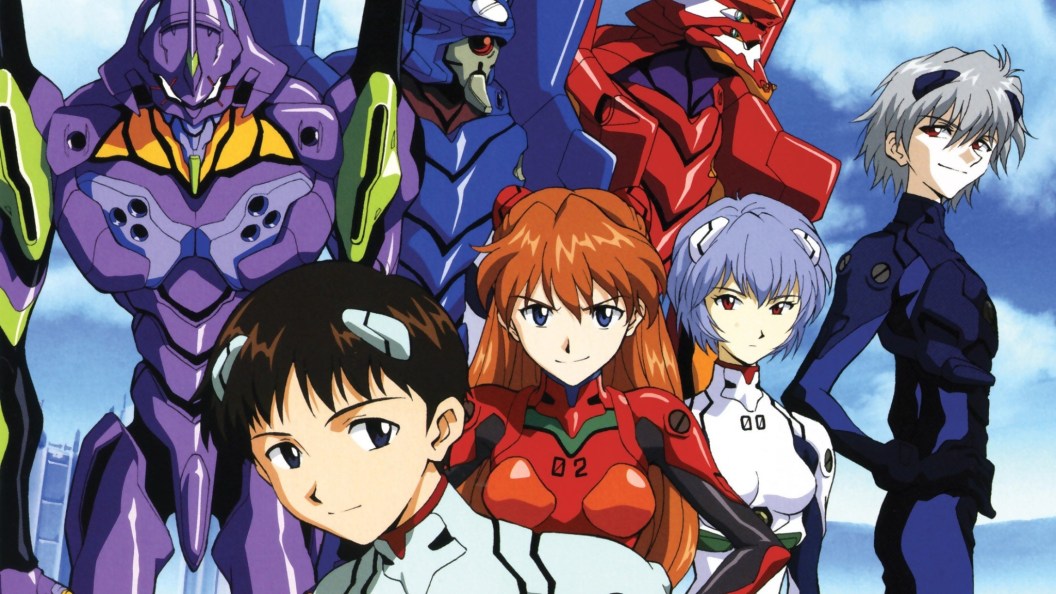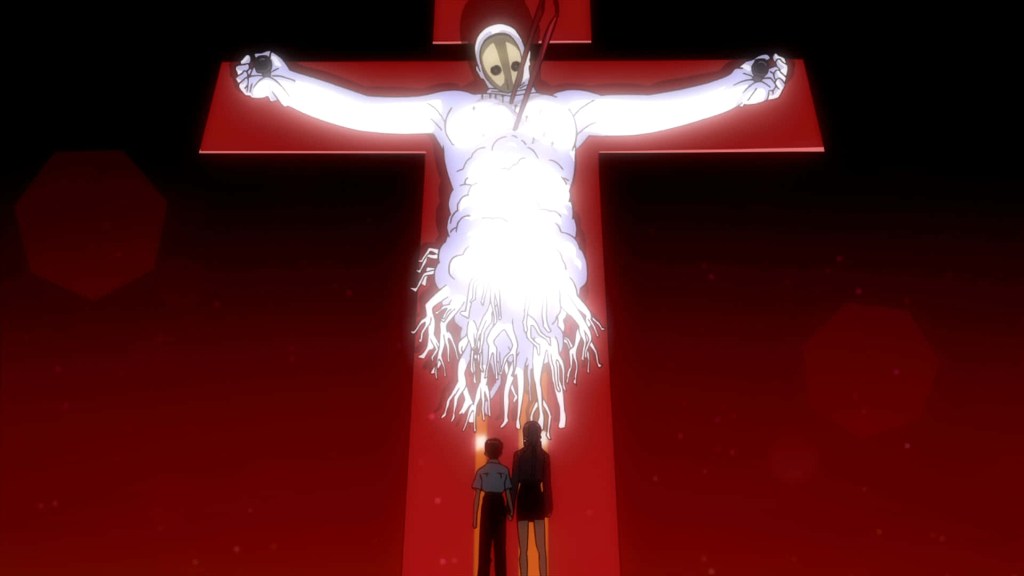
Even 30 years after its initial release, Neon Genesis Evangelion is still one of the most theorized and discussed anime among fans of the medium. Created by Hideaki Anno, the series premiered back in 1995, and its biblically charged sci-fi mystery has fascinated viewers for three decades. Even after such time, and several feature-length movies, fans are still determined to work out the true meaning behind Neon Genesis Evangelion.
One of the biggest mysteries of the series is its Christian iconography, subtext, and influence. Even its title, “Evangelion,” refers to ‘good news’ in a religious context. Add to that the Angels, who explode into crosses when killed, and various other dogmatic elements, and NGE is arguably one of the most Christian anime of all time (although, it probably won’t get screened at your local church). But what does it all mean? Is it an allegory for Jesus? Can humans play God? And what do the Angels actually represent? The answer is far simpler than fans believe.
Neon Genesis Evangelion Isn’t as Deep as You Thought

In terms of fan theory rabbit holes, Neon Genesis Evangelion is up there with the long-running Fate series. Reddit threads, online forums, and water coolers (remember those?) have been bombarded by discussions surrounding the subtextual and thematic meaning of Neon Genesis Evangelion‘s biblical overtones. The series is a tapestry of interwoven Christian references that build layer upon layer on top of its already complex mystery. Surely, such a complex and rich series must have a deeper meaning? Lol, nope.
It turns out, Neon Genesis Evangelion really isn’t that deep. In 2001, the show’s assistant director, Kazuya Tsurumaki, gave an interview to promote FLCL, and he was asked about Evangelion‘s Christian imagery and subtext. While many were expecting a gigantic tell-all into the show’s secrets, Tsurumaki instead cut through the mystery with a proverbial cryoknife.
Neon Genesis Evangelion isn’t an allegory for the Bible, nor do the Angels herald in the second coming of Christ. Anno and Tsurumaki put all that imagery in there because it looked cool, and to help the series stand out from other mecha anime. “There are a lot of giant robot shows in Japan, and we did want our story to have a religious theme to help distinguish us,” his answer began. “Because Christianity is an uncommon religion in Japan, we thought it would be mysterious. None of the staff who worked on Eva are Christians. There is no actual Christian meaning to the show; we just thought the visual symbols of Christianity looked cool. If we had known the show would get distributed in the US and Europe, we might have rethought that choice.”
Religious Subtext in Neon Genesis Evangelion

Neon Genesis Evangelion hits audiences with its religious imagery right from the get-go (or, at least, after its iconic OP). The first episode presents viewers with the Angels and the Evas created to defend humanity from them. Even the concept of Angels being humanity’s biggest threat feeds into the religious notions of sin and retribution. As the show progresses, the religious iconography becomes more overt and frequent.
The NERV agency has its own version of Adam locked away in a secret facility. The Evas are the company’s dogmatic attempts to produce a creature in God’s image. Adam is impaled with the Spear of Longinus, which is named after the Roman soldier who crucified Jesus in the Bible. Crosses feature heavily in the show, both through the Angel’s destructive power and in more subtle animation and scenery. Some even argue that the Angels are designed to represent biblically accurate angels from the Bible.
Neon Genesis Evangelion is easily the most famous example of a “Christian anime,” because it was the series that popularized such iconography within the medium and Japanese storytelling. Following Evangelion‘s release in 1995, Christianity became an obsession of Japanese anime, manga, and video game creators. The likes of Madoka Magika, Cowboy Bebop, Final Fantasy, Re:Zero, and Fate are prominent examples of this phenomenon. But even they don’t come with deep thematic reasons for using Christian imagery. It simply comes from an obsession with the ‘other,’ as Christianity is still seen as “exotic” by many storytellers in Japan, the same way Hollywood filmmakers have long been obsessed with Buddhism and Shaolin.
H/T: Akadot
The post The True Meaning of Evangelion Isn’t What Fans Think appeared first on ComicBook.com.


